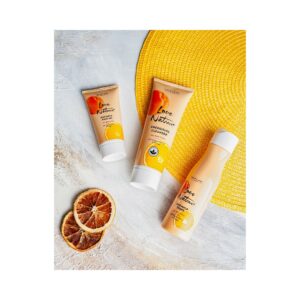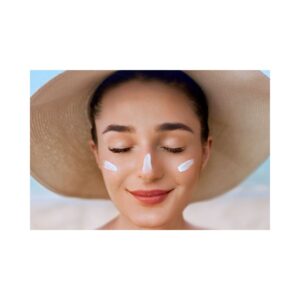Title: The Ultimate Guide to Choosing the Best Sunscreen for Oily Skin When it comes to skincare, finding the right sunscreen for oily skin can be a game-changer. Oily skin poses unique challenges, such as excess sebum production and the potential for clogged pores. However, this should not be a reason to skip sunscreen, as protecting your skin from harmful UV rays is crucial for maintaining a healthy complexion and preventing premature aging. In this article, we will explore the key factors to consider when choosing a sunscreen for oily skin and highlight some of the best options available on the market.



Table of Contents
ToggleKey Considerations for Sunscreen for Oily Skin:
- Non-comedogenic Formulas: Look for sunscreens labeled as non-comedogenic, meaning they are specifically formulated not to clog pores. This is essential for those with oily skin to prevent the exacerbation of acne or the formation of blackheads.
- Oil-Free and Mattifying Formulas: Opt for oil-free sunscreens that provide a matte finish. These formulations are designed to control excess oil and shine, making them ideal for individuals with oily or combination skin.
- SPF Level: Choose a sunscreen with a broad-spectrum SPF of at least 30. Higher SPFs are also beneficial, especially if you spend extended periods in the sun. Make sure the sunscreen protects against both UVA and UVB rays.
- Gel or Water-Based Sunscreens: Lightweight gel or water-based sunscreens are excellent choices for oily skin. They tend to be absorbed quickly, providing protection without leaving a greasy residue.
- Added Skincare Benefits: Some sunscreens come with additional skincare benefits such as antioxidants, niacinamide, or hyaluronic acid. These ingredients can help address specific concerns like inflammation, redness, or hydration while protecting the skin from the sun.
Top Sunscreens for Oily Skin:
- La Roche-Posay Anthelios Melt-in Milk Sunscreen SPF 60: This sunscreen is known for its lightweight texture and fast absorption. It offers broad-spectrum protection and is water-resistant, making it an excellent choice for outdoor activities.
- Neutrogena Hydro Boost Water Gel Lotion SPF 30/50: Neutrogena’s Hydro Boost line is popular for its hydrating properties without clogging pores. The water-gel formula is suitable for oily skin and provides effective sun protection.
- EltaMD UV Clear Broad-Spectrum SPF 46: EltaMD’s sunscreen is formulated with niacinamide, which helps soothe irritated skin. It is oil-free, non-comedogenic, and suitable for sensitive skin.
- Biore UV Aqua Rich Watery Essence SPF 50: This Japanese sunscreen is well-loved for its lightweight, watery texture. It absorbs quickly, leaving a matte finish and providing strong sun protection.
- CeraVe Hydrating Mineral Sunscreen SPF 30/50: CeraVe’s mineral sunscreen is oil-free and contains ceramides to help maintain the skin’s natural barrier. It is a great option for those with oily and sensitive skin.
Conclusion:
Choosing the right sunscreen for oily skin involves considering non-comedogenic, oil-free formulations with an appropriate SPF level. Fortunately, many brands offer sunscreens tailored to meet the needs of individuals with oily skin. By incorporating a suitable sunscreen into your daily skincare routine, you can protect your skin from the sun’s harmful rays without compromising its health and appearance. Remember, consistent sun protection is key to maintaining a youthful and radiant complexion, regardless of your skin type.
Title: The Numerous Benefits of best Sunscreen for oily Skin Health
Sunscreen is an essential component of a skincare routine that often takes a backseat in people’s daily lives. However, understanding and incorporating sunscreen into your daily routine can contribute significantly to overall skin health. Beyond the common knowledge of sunburn prevention, sunscreen offers a myriad of benefits that extend to long-term skin protection and anti-aging. In this article, we will delve into the various advantages of using sunscreen regularly.
- Protection Against UV Radiation: The primary function of sunscreen is to shield the skin from harmful ultraviolet (UV) radiation emitted by the sun. UV rays are notorious for causing sunburns, premature aging, and increasing the risk of skin cancers. Sunscreen acts as a protective barrier, preventing these damaging rays from penetrating the skin and causing harm.
- Prevention of Sunburns: Sunburns are not only painful but also an indication of skin damage. Sunscreen, when applied properly, helps prevent sunburns by blocking UVB rays, which are responsible for causing the skin to redden and blister. This protection is crucial in avoiding short-term discomfort and long-term consequences.
- Reduction of Skin Cancer Risk: Prolonged and unprotected exposure to the sun can elevate the risk of developing skin cancers, including melanoma, basal cell carcinoma, and squamous cell carcinoma. Regular use of sunscreen has been linked to a decreased likelihood of these skin cancers, offering a proactive approach to maintaining skin health.
- Prevention of Premature Aging: UV radiation accelerates the aging process of the skin, leading to wrinkles, fine lines, and sagging. Sunscreen helps in preventing premature aging by acting as a barrier against the harmful effects of UV rays. This means that daily use of sunscreen can contribute to maintaining youthful and healthier-looking skin.
- Minimization of Hyperpigmentation and Dark Spots: Sun exposure can exacerbate issues related to hyperpigmentation, such as dark spots and melasma. Sunscreen aids in minimizing these concerns by preventing UV rays from triggering excess melanin production, which is the pigment responsible for darkening the skin.
- Protection Against Environmental Damage: Beyond the sun, environmental factors like pollution and free radicals can contribute to skin damage. Some sunscreens contain antioxidants that provide an additional layer of defense against these environmental stressors, enhancing overall skin protection.
- Maintenance of an Even Skin Tone: Uneven skin tone can be a result of prolonged exposure to the sun. Sunscreen helps in maintaining a more even complexion by preventing the development of sunspots and discoloration, fostering a smoother and healthier appearance.
Conclusion:
Incorporating sunscreen into your daily skincare routine is not just a beauty ritual; it is a vital step in preserving and protecting your skin from the harsh effects of sun exposure. The benefits extend far beyond preventing sunburns, encompassing long-term protection against skin cancers, premature aging, and other environmental damages. Embracing sunscreen as a proactive measure is an investment in your skin’s health and a step towards maintaining a radiant and youthful complexion.
Title: Mastering Sunscreen Application for Oily Skin: A Comprehensive Guide
Ensuring proper sun protection is a crucial aspect of skincare, regardless of your skin type. However, individuals with oily skin often face unique challenges when it comes to applying sunscreen. The fear of clogged pores and an overly greasy complexion can make sunscreen application seem like a daunting task. This article aims to provide a comprehensive guide on how to effectively apply sunscreen on oily skin, ensuring protection without compromising your skin’s health.
- Choose the Right Sunscreen:
Opting for a sunscreen specifically formulated for oily or acne-prone skin is the first step towards successful sun protection. Look for products labeled as “oil-free,” “non-comedogenic,” or “gel-based.” These formulations are designed to provide broad-spectrum protection without exacerbating oiliness or causing breakouts.
- Prioritize SPF:
Select a sunscreen with a broad-spectrum SPF of at least 30. This ensures protection against both UVA and UVB rays. For oily skin, lightweight formulations with higher SPF are often available, providing effective sun protection without feeling heavy on the skin.
- Cleanse Before Application:
Start with a gentle cleanser to remove excess oil and impurities from your skin. This ensures a clean canvas for the sunscreen application and helps prevent clogged pores. Consider using a cleanser with salicylic acid or niacinamide to control excess oil production.
- Apply the Right Amount:
Many people underestimate the amount of sunscreen needed for adequate protection. The recommended amount is approximately a nickel-sized dollop for the face. Apply it evenly across your face, neck, and other exposed areas.
- Pat, Don’t Rub:
Instead of vigorously rubbing the sunscreen into your skin, pat it gently. This technique helps prevent excess friction that can stimulate oil production. Use your fingertips to tap and press the sunscreen into your skin until it is fully absorbed.
- Reapply Throughout the Day:
Oily skin tends to produce more sebum, which can break down sunscreen over time. Reapply your sunscreen every two hours, especially if you’re sweating or engaging in water activities. Choose a convenient and travel-friendly sunscreen for on-the-go touch-ups.
- Consider Powder Sunscreens:
Powder sunscreens are an excellent option for those with oily skin. They come in compact form and can be easily applied throughout the day to control excess shine. Look for mineral powder sunscreens containing ingredients like zinc oxide or titanium dioxide for added protection.
- Layering with Other Products:
If you have a skincare routine, ensure that your sunscreen is the last product you apply before makeup. Layering lighter products before your sunscreen can help prevent a heavy, greasy feeling.
Conclusion:
Mastering sunscreen application on oily skin is a matter of choosing the right products and adopting proper techniques. By selecting a suitable sunscreen, cleansing effectively, and applying the appropriate amount, you can enjoy the benefits of sun protection without compromising the health of your oily skin. Consistency is key, so make sunscreen application a daily habit to safeguard your skin from the harmful effects of UV rays.

